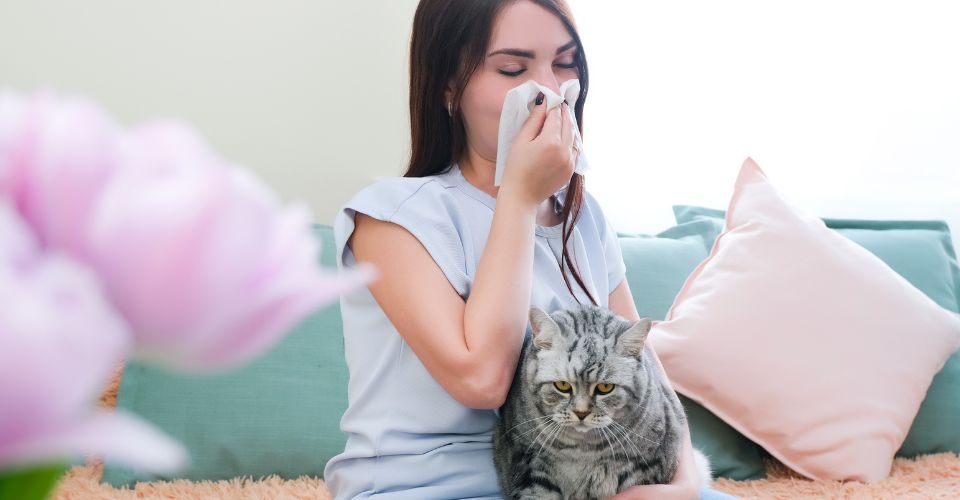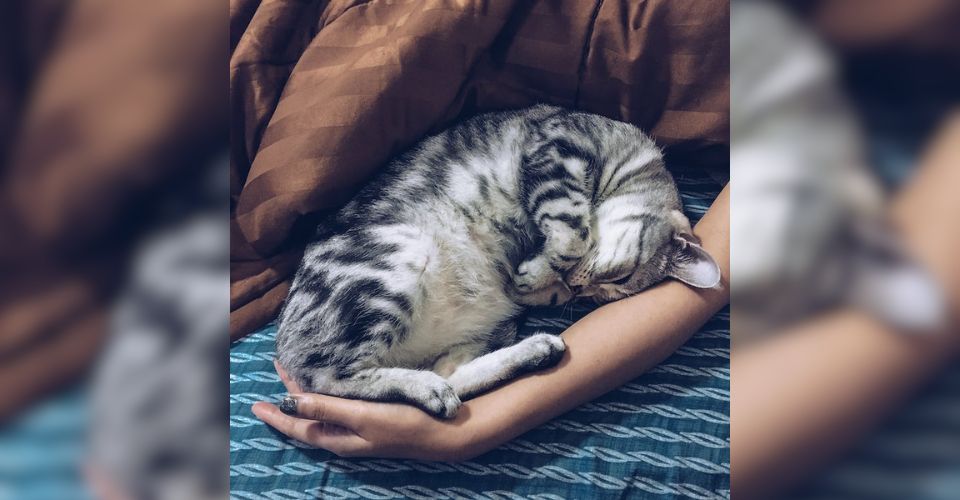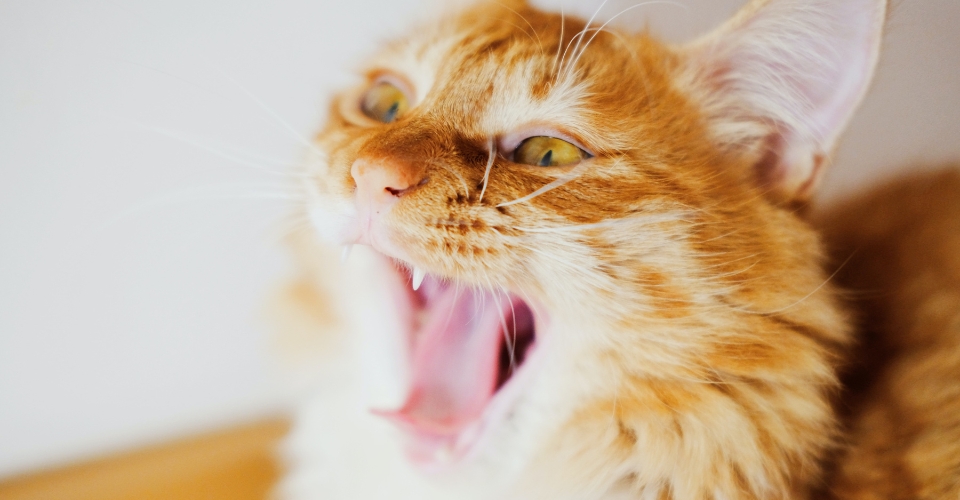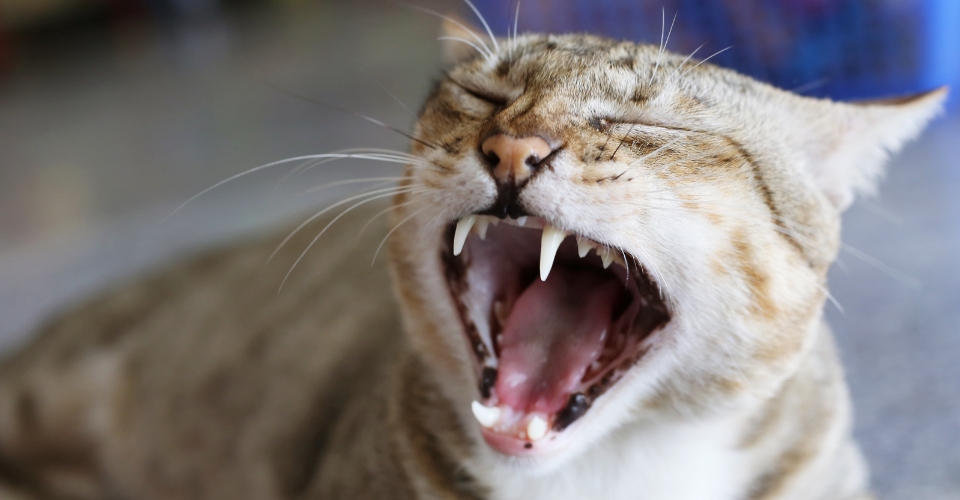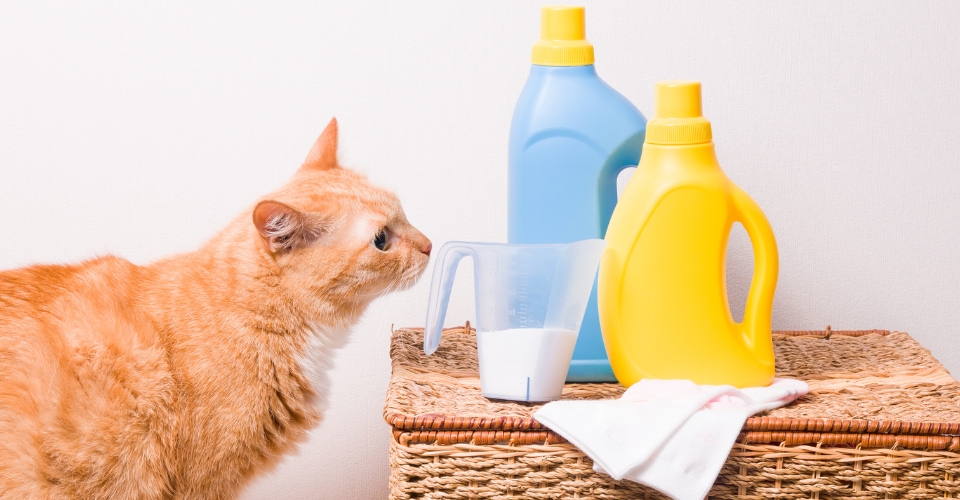While around 95% of the humans report that they sneeze four times a day, cat owners often report that their furry pals meow after they sneeze. Though cats – especially the domesticated ones – become vocal for several reasons, such as asking for food or saying hello, the correlation between meowing and sneezing seems to be very uncanny, leaving kitty parents wondering: ‘Why does my cat meow after I sneeze?’
But though the correlation is mysterious, causation is not. The reasons can be summed up in eight simple points.
Why Does My Cat Meow After I Sneeze?
There could be several reasons why your cat meows after you sneeze. Feline reaction to sudden loud sounds such as human sneezes stems from their evolution. Over time, their hunting instincts and quest for survival have granted them a very powerful hearing sense to stay alert in all situations. Resultantly, they are bound to react when noises penetrate their ear canal. Afterward, it is a matter of a cat’s personality on how to respond – some are amused, some frightened, while others prefer physical over verbal actions.
1. ‘Jeez! What Was That?’
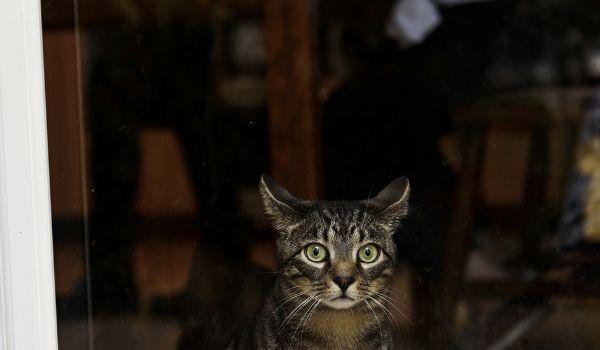
Having sensitive ears, it is quite normal for cats to feel scared and anxious when they hear sudden noise. Since bewildered cats meow to seek reassurance, your furry pal might try to be vocal with you after you sneeze. She will meow at you to seek your petting and fondling that can calm her down. If you respond affectionately right at that moment, your relationship with her will become even stronger.
2. ‘How Dare You!’
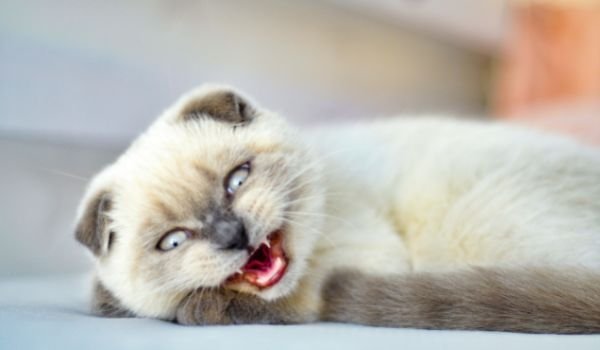
Your cat might be taking a nap while you sneezed. She might be having a sweet and peaceful dream (yes, cats do dream) while you rattled her sensitive furry ears with your loud ‘achoo!.’ What do you expect? Will not she get annoyed? Well, a cat might get angry when her sleep is interrupted, and she might vent her protest by meowing at the interrupter. Do not forget to calm down your hyper cat!
3. Confusion With Hiss
Cat hissing is a sign that your cat is afraid and anxious about something. Cats often hiss at other pets, humans, or things that might be irritating them or instilling fear in them. If your furry friend thinks you are a part of the feline family, she might take your ‘achoo for ‘hiss.’ Hence, she might be dumbfounded when you sneeze. ‘Why is my pal hissing at me?’
In a quest to calm down the environment and console you, she will vie hard to come and meow at you. ‘Chill out, pal. Is everything alright?’
4. Cats Are Copycat
Copying human beings is one of the favorite jobs of cats. Though your kitty might look very serious, she could be very funny at times. Hence, there is a huge probability that she might often try to imitate you. Since she cannot exactly say ‘achoo’ as you do, she would try to say it in the cat language, and that could be a ‘meow.’
5. ‘Bless You, Human!’
Many people have reported that their cats try to communicate with them when they sneeze. It could be as if they are trying to console their human pals – to put simply, saying ‘bless you’ as we say to each other.
Your cat might have seen you and your friend sneezing and saying bless you afterward, and since, as explained, cats try to imitate human beings, she might try to become your friend and say the same words when you sniffle.
6. ‘You Fine, Mate?’

It is believed that cats can sniff out the state of health in human beings and even in animals. Thanks to their strong olfactory senses, cats can find health issues and diseases in others by smelling the chemical changes occurring in their bodies. If you feel sick or sneezing due to any health issue, say allergies, chances are, your cat will observe it immediately and try to find if everything is alright with you by saying meow.
7. Seeking Attention
When you sneeze, the people around you usually come and offer tissues while saying bless you. For cats, it is unacceptable unless they are also a part of it. When people mingle together, they also want to join in. They don’t want to be ignored. In a quest to get attention, she might interrupt the gathering by meowing repeatedly.
8. A Reminder of Past Trauma
A cat might meow excessively after you sneeze due to any experience where she suffered because of loud noises. If that is the case, you might also notice visible signs of fear on her face, and she might also become jumpy and rude. Though the middle ear muscles in cats contract when a loud noise is heard to lessen its impact, an injury may occur, leading to trauma.
If you suspect such an occurrence in your cat, consult a vet immediately.
What Else to Expect?
As disclosed earlier, how a cat might respond to your sneeze depends upon her personality. Though it is common, meowing is not the only action you can expect from your cat – it goes further than that.
1. Chirping
For a long, it was thought that cats only chirp at birds and squirrels while stalking them, lounging in their window perches. However, they may do so at anyone and whenever they feel happy. When you sneeze in front of your kitty, she might get excited for no reason, and you may find her chirping at you instead of simply saying meow. In the video below, the cat chirps in response to a human sneeze.
2. Fleeing
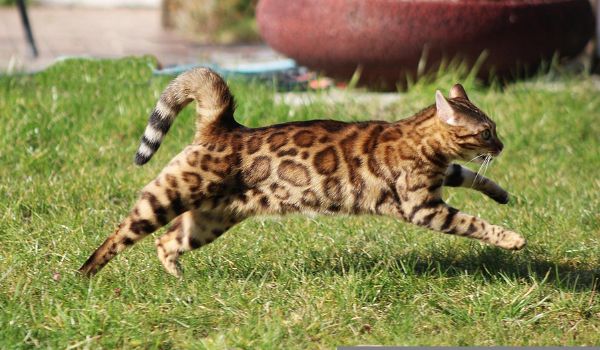
As explained in one of the reasons for meowing, cats may feel scared when people sneeze. And sometimes, they may start running like crazy if the fear grips them tightly or the sneeze happens to be too loud. So, the next time you deliver a giant sneeze, get ready to see your cat running at her top speed instead of calmly saying meow.
3. Airplane Mode
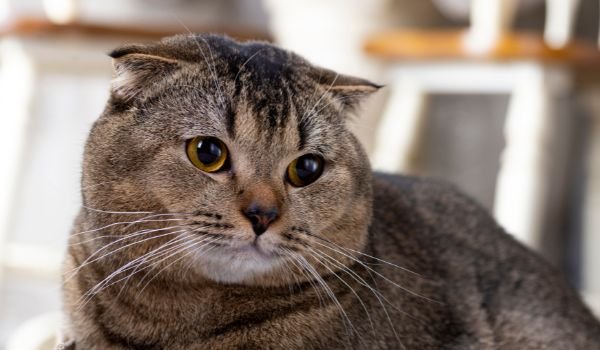
If your sneeze agitates your cat, she might not just say meow; instead, she might just stand still and look at you annoyed, with her ears turned flat like airplane wings. It would mean that she is uncomfortable and aggressive behavior may ensue. If your kitty has big ears, you can easily see them going flat, showing you that she is agitated (now prepare to comfort her!).
4. No Reaction
Exceptions are always there. Although cats are very sensitive to loud sounds, it is possible that your pet might not show any reaction at all, even if your blaring sneeze annoys her quite a bit. Every cat is different and reacts differently, and sometimes, no reaction is also a reaction.
Can You Stop It?
If your cat feels about your sneezing in a certain way, there is not much you can do to stop her meowing response. The only viable option is to train her with positive reinforcements.
Let your cat know that there is nothing wrong or scary about you sneezing in front of her. And to make her realize it, try to keep her calm whenever you sneeze, and if she does not meow afterward, give her some perfect cat treats. Though it is a long process, doing it regularly will gradually help your cat understand that sneezing is normal and there is nothing to worry about.
Conclusion: Why Does My Cat Meow After I Sneeze?
Cats are sensitive to loud noises. Your cat may meow if your loud sneeze has disrupted her naptime or startled her. Cat meows to record her protest against the annoying noise of sneezing. To be specific, there could be several reasons, such as feeling scared, becoming annoyed, or getting excited underlying cat meowing in response to your sneeze. That said, meowing is not the only reaction – cats react differently according to their personality types when their owners sneeze. Through training, however, reactions can be controlled to a certain extent.

